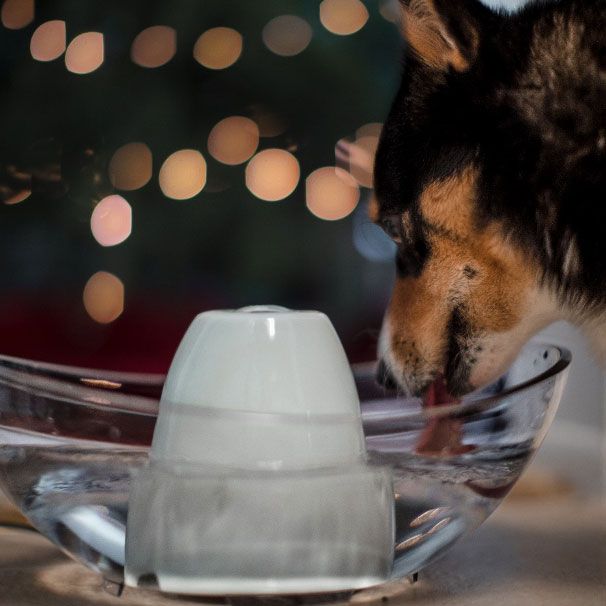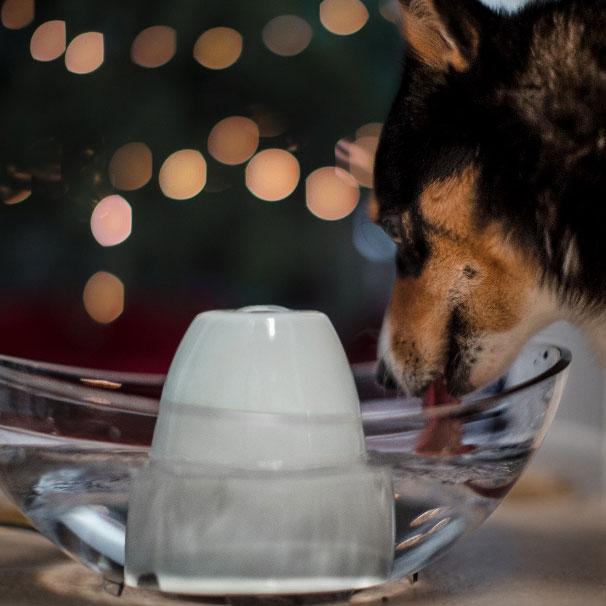You may have noticed a new item on the list of canine vaccinations recommended by your veterinarian, or those required for boarding or grooming services. Just like humans, dogs can contract a form of influenza, also known as dog flu. And like humans, dogs can be vaccinated against the flu to reduce the chance they’ll get it. And if they do, vaccines can reduce the severity of the accompanying symptoms. While it’s a line item you may not want to see on your vet bill, most veterinarians recommend dogs receive the canine flu vaccination if they are in good health and have no underlying ailments.
Consult your veterinarian for more information, but here are some basic questions and answers about dog flu.
Question: What is dog flu?
Answer: Canine influenza is highly contagious among dogs. Dog flu symptoms are like those of influenza in humans: heavy mucus discharge, coughing, respiratory distress, fever and fatigue. There are two known strains of dog flu. One (H3N8) is believed to originate from flu virus that originally affected horses, according to the American Veterinary Medicine Association. The other (H3N2) is believed to be a strain of avian influenza that jumped from birds to dogs. There are instances in which the dog flu virus spread from dogs to cats in crowded environments, but it is largely restricted to dog populations. Canine flu is spread through the air when infected dogs cough, sneeze and bark.
Q: How long has dog flu been around in the U.S.?
A: Canine H3N8 flu was first reported in Florida in 2004 among racing greyhounds kept in close quarters. The H3N2 strain first showed up in 2015 during an outbreak of respiratory illness among dogs in the Chicago area. Prior to that, H3N2 was believed restricted to canine populations in Asia. Both strains are now prevalent across the U.S.
Q: What is the risk of my dog getting canine influenza?
A: The risk of a dog getting canine influenza is still relatively low. About 80 percent of dogs exposed to canine influenza get sick, though at varying levels of severity. Because dog flu is quite contagious, dogs are at higher risk when they’re exposed to other pups at busy places like boarding kennels and dog parks.
Q: Can my dog die from dog flu?
A: In severe cases, yes, but most dogs make a full recovery within a few weeks with proper rest, hydration and veterinary care. The dog flu mortality rate is less than 10 percent of dogs who contract the canine flu. Older dogs and dogs with pre-existing health issues are more likely to suffer severe symptoms.
Q: Is dog flu contagious to humans?
A: It is very contagious to other dogs and has been transmitted to cats, but there is no record of humans contracting canine influenza.
Q: Can my other pets catch dog flu?
A: Yes, especially other dogs. It is highly contagious. There are also recorded instances of cats getting canine flu, but that is not common.

Q: What do I do if I suspect my dog has canine influenza?
A: Schedule an appointment with your veterinarian, who can clinically diagnose canine influenza and provide medication to prevent any secondary bacterial infections, such as pneumonia. Immediately isolate the dog from other pets and provide proper hydration and rest. A pet fountain is useful in helping a dog stay hydrated, and a pet feeder can help with regular nourishment. Fountains and feeders should not be shared with other pets until the ill pet returns to good health.
Q: Is a dog flu vaccination required for boarding or grooming services?
A: In many cases, yes. PetSafe Village®, for instance, will not accept any dog for grooming, boarding, training or day care that hasn’t been vaccinated against canine influenza.
Q: Where can I get my dog vaccinated?
A: Most veterinarians can provide the vaccine along with the standard vaccinations against rabies, distemper and other diseases.
It is your decision whether to vaccinate your pup against dog flu but remember: They might not have access to many services if they aren’t vaccinated, and the recovery and quarantine can take as long as a month. Spending on care and vet visits can add up quickly, and dogs who contract the flu pose a risk to other animals in your home and elsewhere. As the saying goes: An ounce of prevention is worth a pound of cure.






